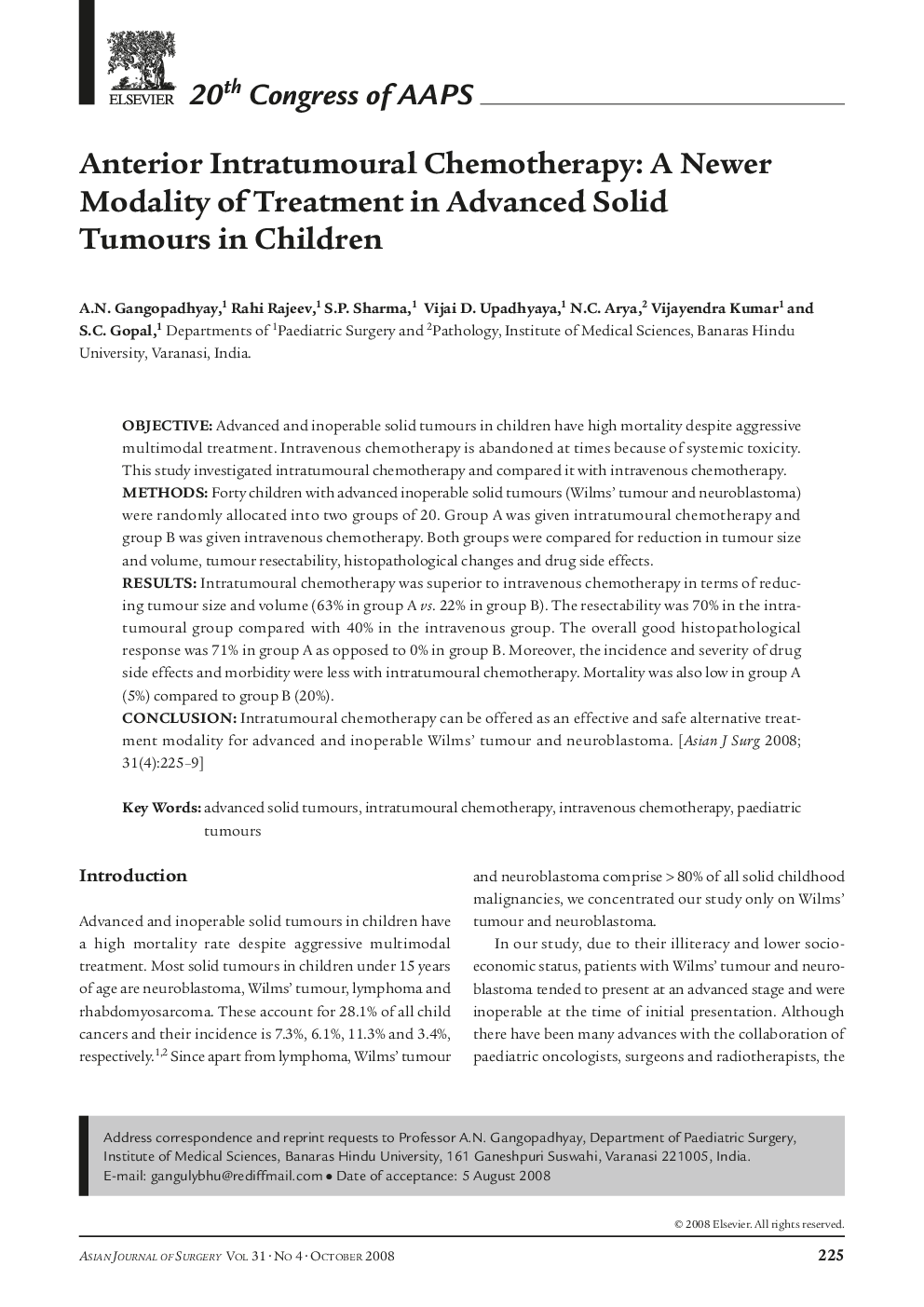| Article ID | Journal | Published Year | Pages | File Type |
|---|---|---|---|---|
| 4282835 | Asian Journal of Surgery | 2008 | 5 Pages |
OBJECTIVEAdvanced and inoperable solid tumours in children have high mortality despite aggressive multimodal treatment. Intravenous chemotherapy is abandoned at times because of systemic toxicity. This study investigated intratumoural chemotherapy and compared it with intravenous chemotherapy.METHODSForty children with advanced inoperable solid tumours (Wilms' tumour and neuroblastoma) were randomly allocated into two groups of 20. Group A was given intratumoural chemotherapy and group B was given intravenous chemotherapy. Both groups were compared for reduction in tumour size and volume, tumour resectability, histopathological changes and drug side effects.RESULTSIntratumoural chemotherapy was superior to intravenous chemotherapy in terms of reducing tumour size and volume (63% in group A vs. 22% in group B). The resectability was 70% in the intratumoural group compared with 40% in the intravenous group. The overall good histopathological response was 71% in group A as opposed to 0% in group B. Moreover, the incidence and severity of drug side effects and morbidity were less with intratumoural chemotherapy. Mortality was also low in group A (5%) compared to group B (20%).CONCLUSIONIntratumoural chemotherapy can be offered as an effective and safe alternative treatment modality for advanced and inoperable Wilms' tumour and neuroblastoma.
